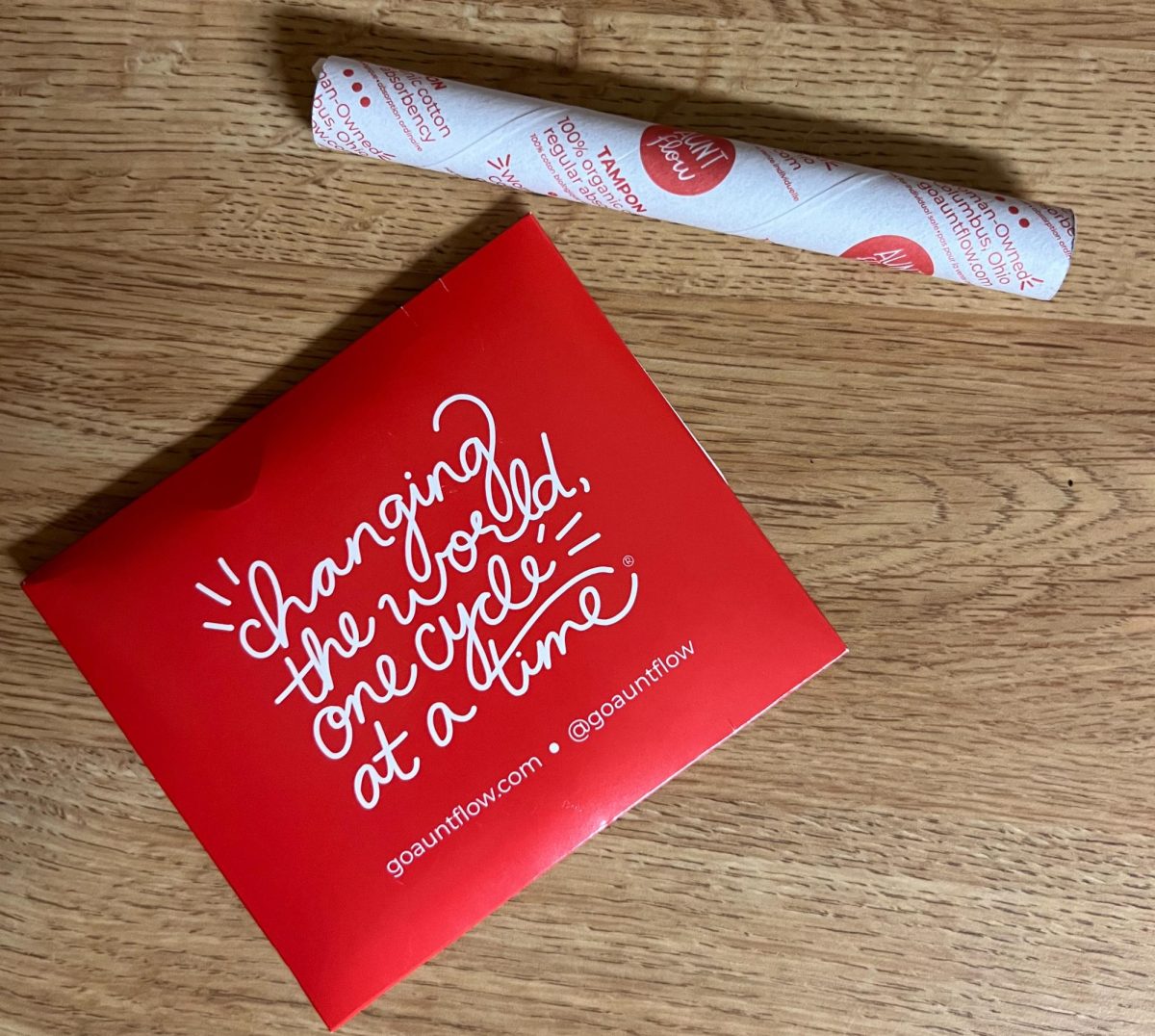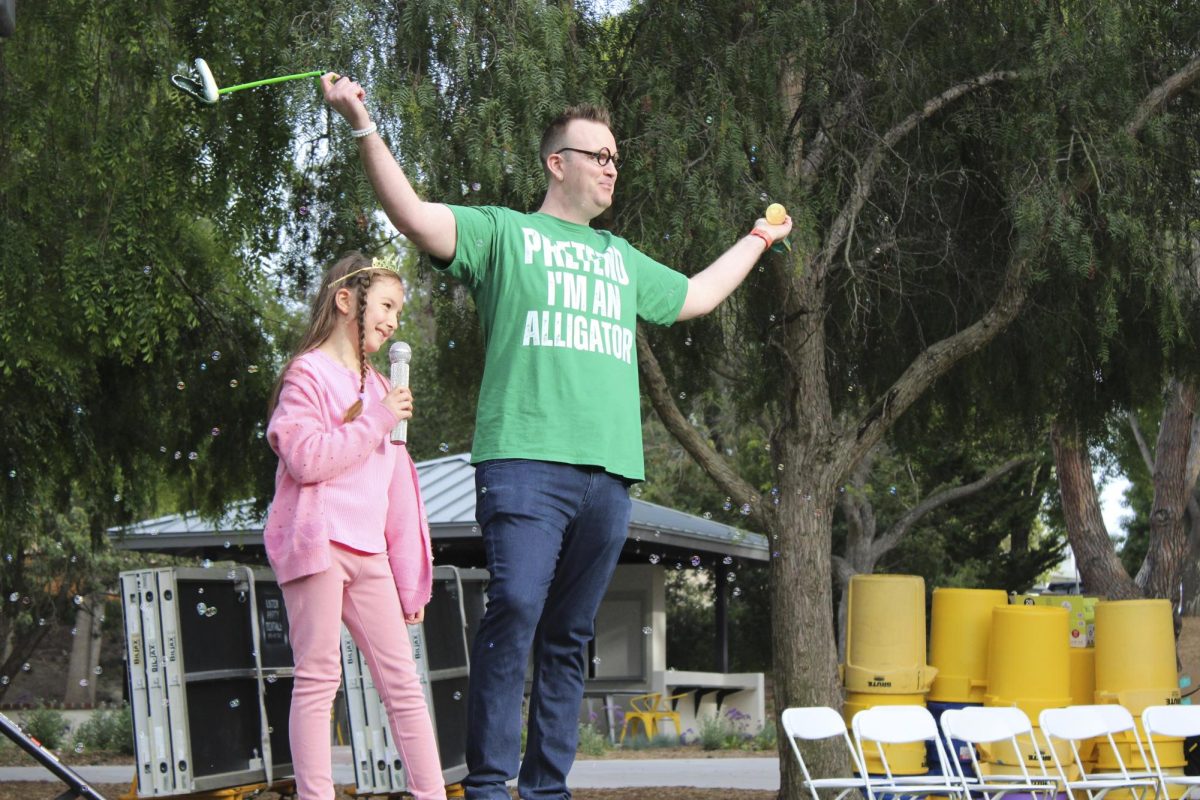At California Lutheran University, access to free menstrual products are only available at Counseling and Psychological Services, Health Services and Wellness Resources. While the university has looked into installing free menstrual product dispensers in campus bathrooms, it has yet to make them widely available.
AfB 367, the Menstrual Equity for All Act, passed in 2023, requires all California public colleges and community college districts to supply and advertise free menstrual products in certain areas on campus.
Director of Auxiliaries and Housekeeping Clinton Oie said there are 65 menstrual product dispensers across all public restrooms on campus. These dispensers require users to pay 25 cents for each feminine hygiene product they take.
Associate Vice President for Facilities Planning & Operations Ryan Van Ommeren said that there isn’t a requirement for menstrual product dispensers to be in restrooms and it is up to the project manager assigned to that project to implement it when one is being built or renovated.
According to a handbook from California’s Health Education, “Private schools are not required to provide free menstrual products under the Menstrual Equity for All Act, but are encouraged to do so as a best practice.”
Van Ommeren said that in 2019 California Lutheran University was subscribed to Aunt Flow, a company that allows schools and businesses access to free menstrual products. He said this was part of an initiative to provide free menstrual products before the pandemic, but the process stalled.
“Maybe everything fell apart because of COVID and because the person who coordinated the program for us retired,” Van Ommeren said.
At the time, Mark Jacobson was director of facilities and in charge of the project, but retired in 2022.
“We got a new director of facilities that I don’t think knew anything about it. Then, in December 2023, I was given the responsibility of housekeeping. But even the housekeepers didn’t even know anything about this program,” Oie said.Van Ommeren said some dispensers were delivered but then stored in one of the university house garages and never installed. During the pandemic, he also said email correspondence with Aunt Flow stopped.
This led to only Ahmanson Science Center’s second-floor restroom getting an installation of one free dispenser and not any other restrooms around campus.
“I think it was the student government initiative that connected us with the Aunt Flow product and that’s how we were going to go, and then that process just stopped before it even got off the ground,” Van Ommeren said. “We have some dispensers and products that we never put out so that’s kind of where we are.”
Van Ommeren said only “quarter machines,” menstrual product dispensers that accept quarters, were available to order at the time. However, Van Ommeren also said Waxie Sanitary Supply, which supplies sanitary products to Cal Lutheran, now has free dispensers, most importantly the same ones from Aunt Flow.
He said the access to free menstrual products has always been supported by his team for a long time but has not been executed. Van Ommeren said they would have to get a quote on the project’s price, send out an announcement, and then begin the new installations.
“I feel like over the next two to three months we could get at least the higher volume areas on campus,” Van Ommeren said. “We just want to resume the process we started and put together a program to start replacing them over time and get all new dispensers in.”
Oie also said he is planning to install ones in the Gilbert Sports and Fitness Center’s lobby women’s restroom, the Humanities first-floor women’s restroom, and in the women’s restroom near Starbucks and the Mail Center.
He said the plan is to switch each quarter-pay dispenser in all public restrooms on campus out with free dispensers.
Amid this new initiative, Capital Project Engineer/Architect Christine Cano insisted there should be free access to menstrual products in the newly renovated softball fields.
“Juan Iraheta, our housekeeping supervisor, says that these (Aunt Flow) dispensers work really nice and work really well,” Oie said.
The quarter-pay ones, Oie said, are stocked by the housekeepers and used very little with barely any quarters collected.
As of Nov. 4, 2024, two Aunt Flow dispensers in the all-gender restrooms in Alumni Hall were installed.
“They didn’t need to be installed at all, but I said let’s install them because according to him [Iraheta] those are the two most used restrooms on campus,” Oie said.
In terms of funding, Oie said this project will come out of the housekeeping operating budget.
“I don’t see it as an everyday use for the students. I see it as an emergency use so I think we can absorb it in the budget the way I see it,” Oie said. “As a father of a 23-year-old daughter, I think it’s very important. That’s why I am trying to make it happen as soon as possible.”
Wellness Coordinator Cari Monraz said in an email interview that Wellness Resources started offering free menstrual products to support student health and well-being.
Pads,, tampons, and liners are offered in three different “sizes” of absorbance to accommodate different flow levels, diverse needs, and personal preferences.
Monraz said this is a direct effect of funding from Student Life and the wellness fee students pay.
“While I am not sure the exact timeframe of when Wellness Resources began supplying these products, I do know that it has been provided for as long as I have been associated with Cal Lutheran (about 6+ years),” Monraz said.
Students can access free menstrual products 24/7 from the basket outside Wellness Resources located upstairs in the Student Union.
“I have never had any issues accessing free menstrual products on campus because I utilized the free products through Wellness Resources,” Monraz said. “As an undergraduate student, I would stop by the basket in between classes to take what I needed and go on my way.”
Monraz said free menstrual product access supports gender equity, reduces barriers to accessing menstrual care and resources, shows menstrual health is important for wellness, and helps break down stigmas around menstruation by promoting open conversations.
Health Services also offers free tampons and pads in which Director of Health Services Saul Miller said students are welcome to stop by and grab some.
“I think having locations on campus where students can pick up free menstrual products is important,” Miller said.
He said surveys show the majority of adults who do menstruate have started their period in a public place and were not able to access the menstrual products they needed.
“Other research shows that students lacking access to menstrual products when they need them are more distracted in classrooms and less likely to attend class, creating gaps in learning and academic achievement,” Miller said.












